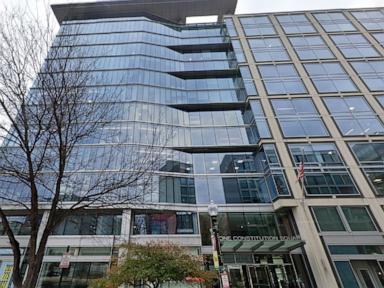Health and Human Services (HHS) Secretary Robert F. Kennedy Jr. and the Department of Government Efficiency are reshaping the U.S. health care system, starting with deep cuts to the agencies Kennedy now leads.
Kennedy and his allies argue such moves are needed to change federal culture and improve efficiency in the name of long-term health improvements. But critics question how Kennedy’s “Make America Healthy Again,” or MAHA, movement can be successful with a weakened federal health department.
In his first public comments about the cuts, expected to impact around 10,000 staffers, Kennedy told reporters the government bureaucracy was too bloated.
“All these programs, all of the CDC, NIH ... were not doing their jobs, and there was tremendous redundancy,” Kennedy told reporters Thursday, referring to the Centers for Disease Control and Prevention (CDC) and the National Institutes of Health (NIH). “We're streamlining the agencies. We're going to make it work for public health, make it work for the American people.”
Even critics concede the sprawling health department could work better, but they see the Trump administration's approach of seemingly indiscriminate job cuts as potentially harmful to Americans, including children.
Among those fired were scientists who tested food and drugs for contaminants, analysts responsible for studying ways to save money on prescription medicines, communications staff who could inform the public about outbreaks and many more.
The administration also fired the entire staff of CDC’s Division of Environmental Health Science and Practice, including members who fought childhood lead exposure and those who worked on cancer clusters.
That division helped discover lead contamination in applesauce pouches that were popular with kids.
“They were practicing evidence-based public health. They're aligned with the chronic disease priorities of the administration. And they were just terminated,” a former agency employee told The Hill.
“The secretary is concerned about chronic disease in this country and has repeatedly mentioned asthma as a specific concern. Is he aware he fired all the experts in CDC’s National Asthma Control Program?”
The MAHA movement wants to refocus the nation’s efforts to spend less time and attention on treating illness and instead work to fix why people are getting sick.
Kennedy has talked about putting lifestyle and diet at the fore of U.S. health policy by banning artificial food dyes, eliminating soda from the Supplemental Nutrition Assistance Program, and addressing rising rates of chronic illness such as diabetes and asthma in kids.
He's also pledged “radical transparency,” and in his first address to staff, he said, “both science and democracy flourish from the free and unimpeded flow of information.”
Yet on Tuesday, Kennedy eliminated entire agency communications teams and gutted staff responsible for processing Freedom of Information Act requests.
Elsewhere, top subagency heads who might have clashed with Kennedy — such as Peter Marks, the top vaccine regulator — were ousted, and entire divisions were either eliminated, including groups focused on HIV prevention and violence prevention, or moved under HHS directly in a consolidation of Kennedy’s oversight.
“Even if one thought that [the Food and Drug Administration] or HHS needs a reorganization, this isn't a sensible approach to doing that,” said Patricia Zettler, a law professor at the Ohio State University College of Law who served as HHS deputy general counsel until January.
“This is a tremendous amount of expertise that the agency is losing across all areas that it regulates.”
Impacted ...













